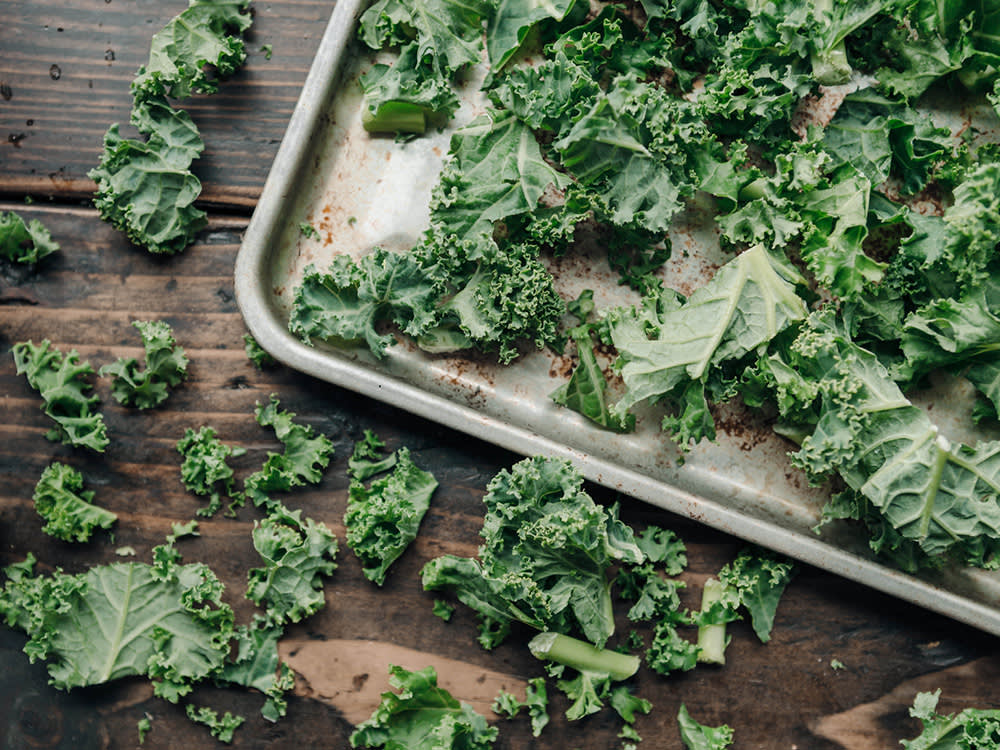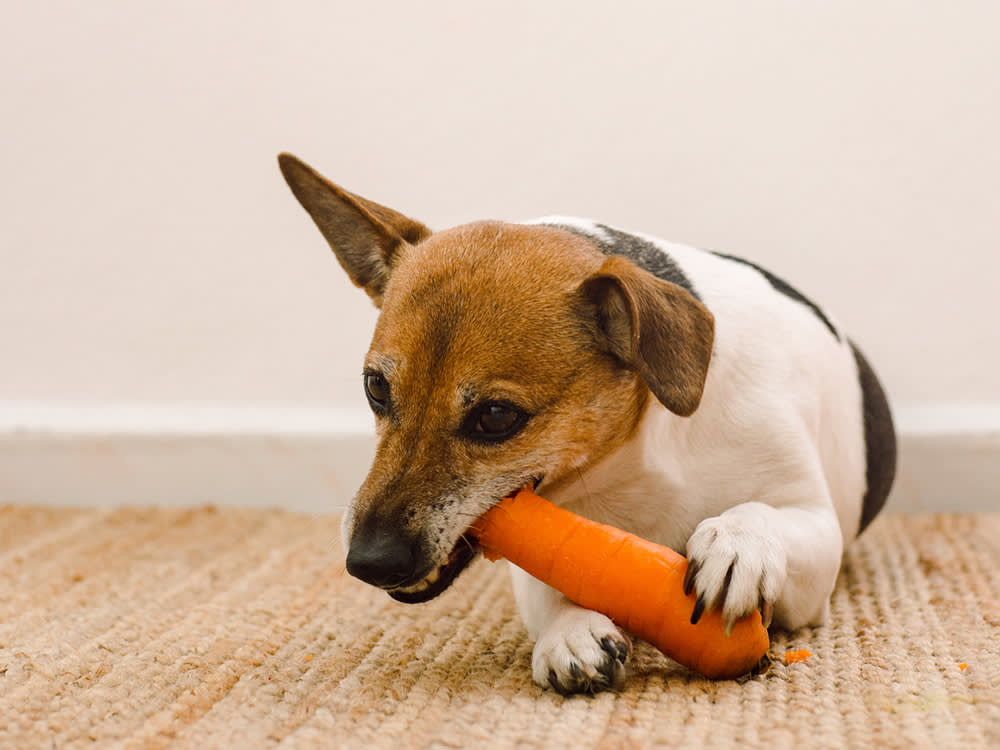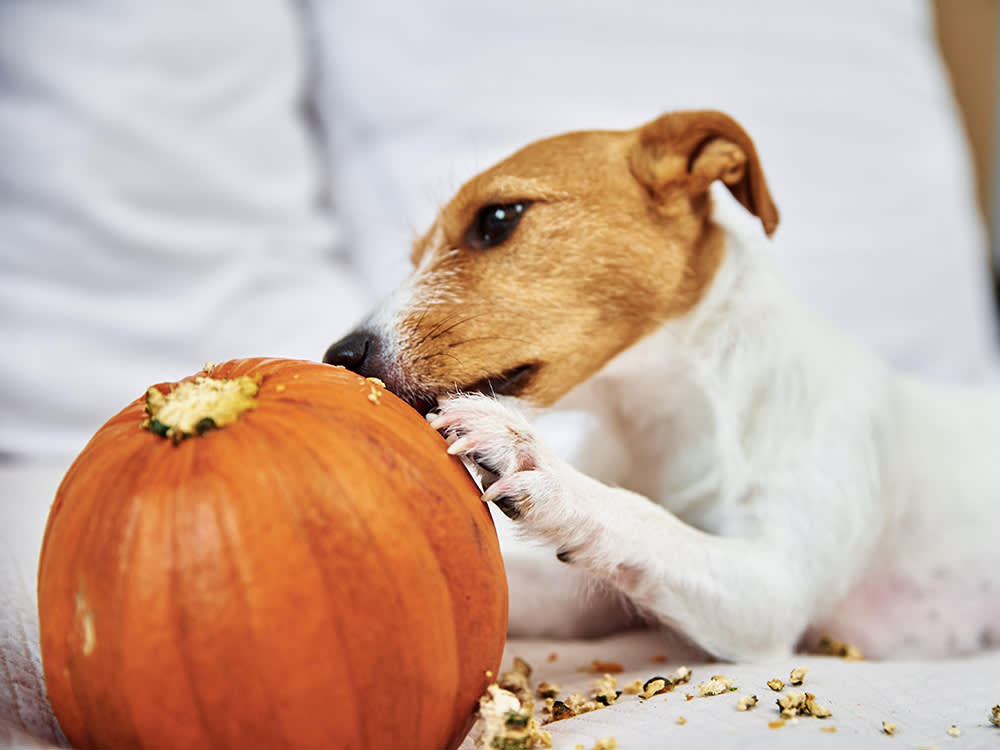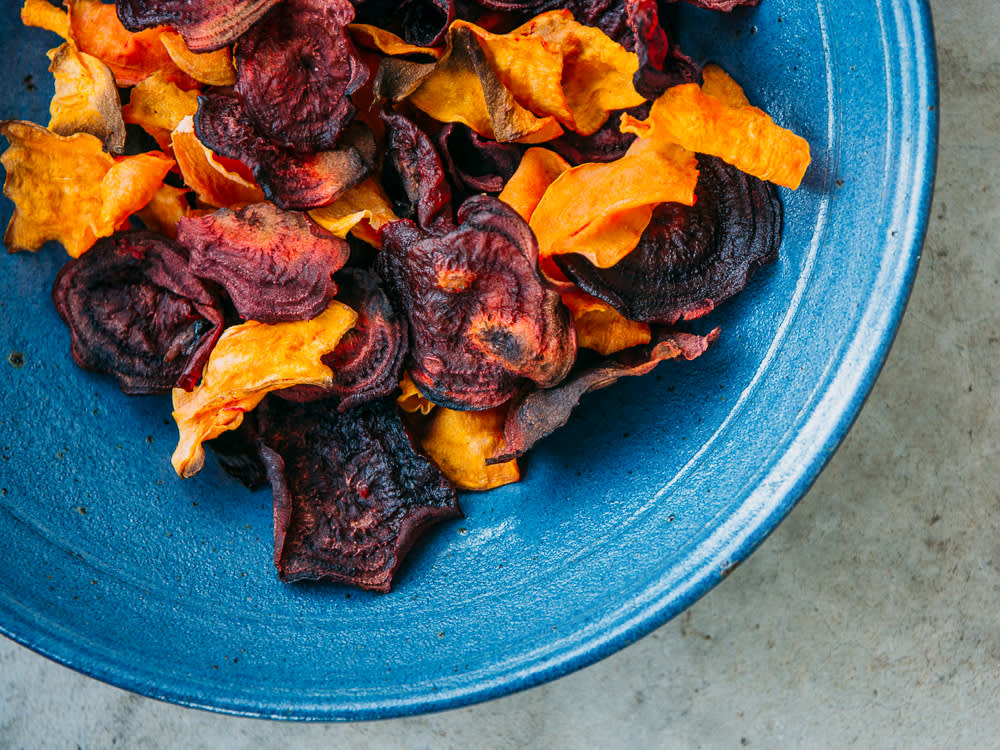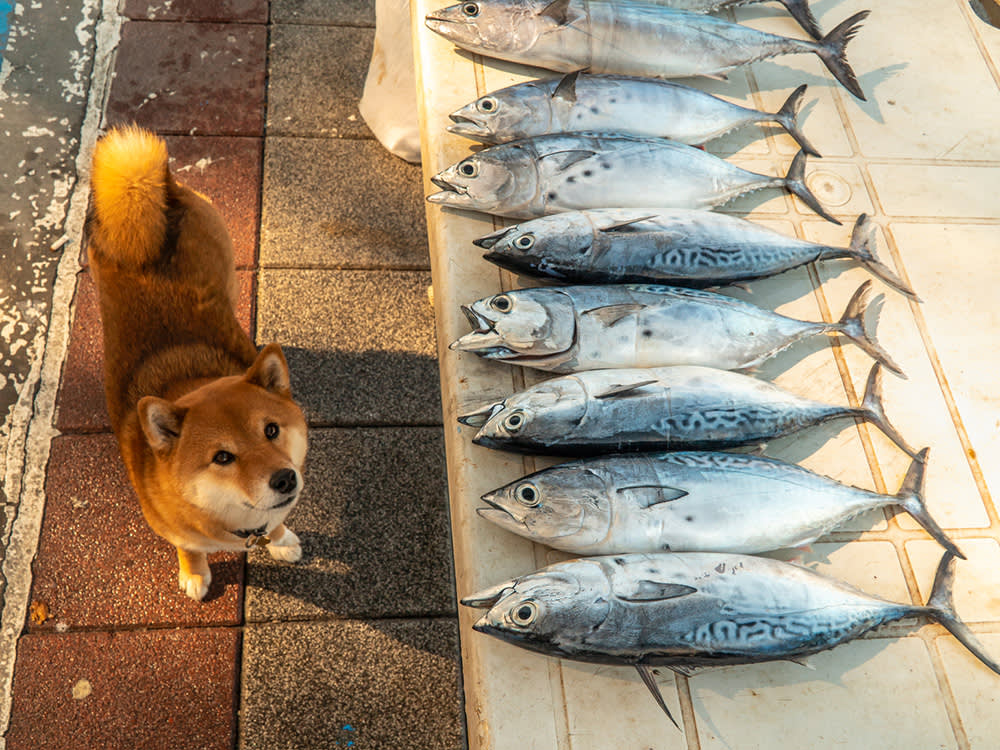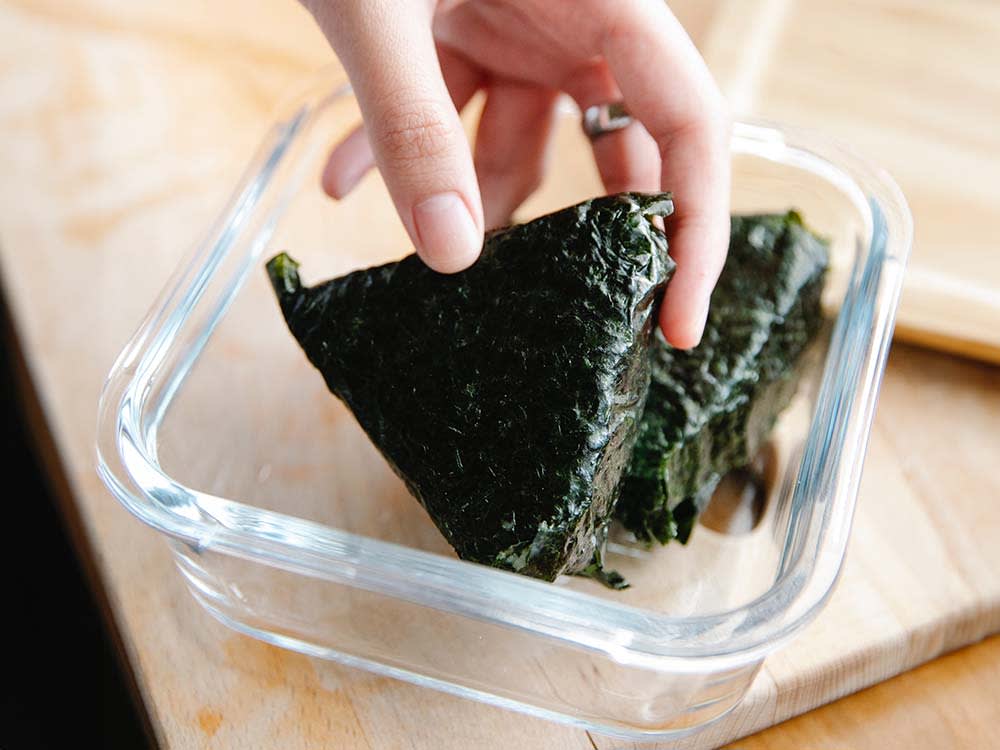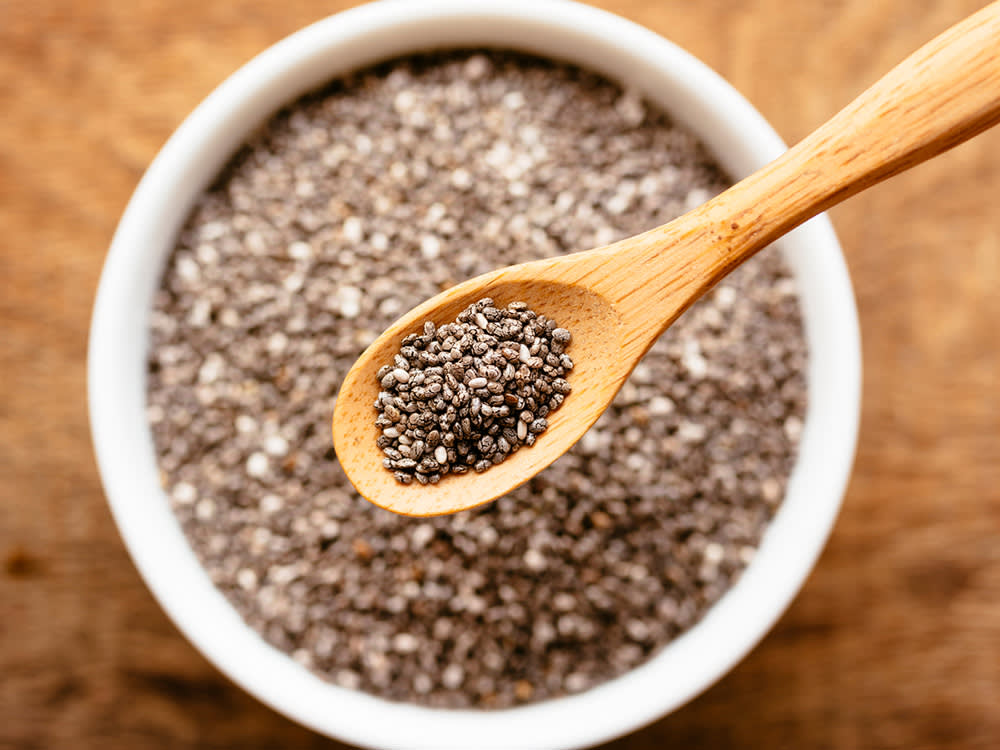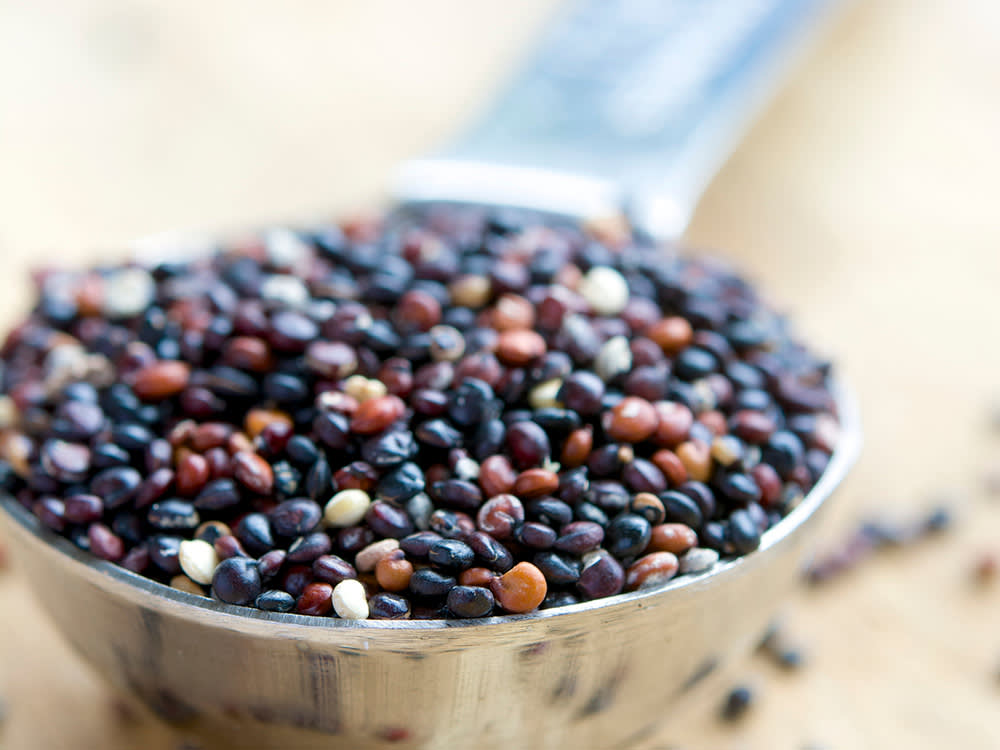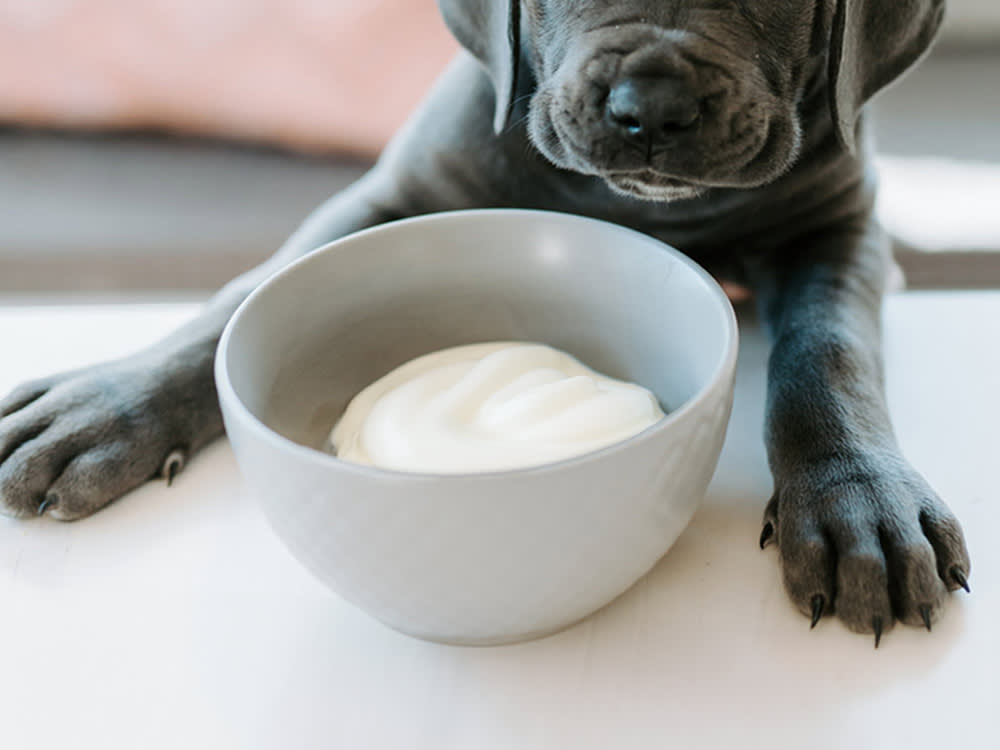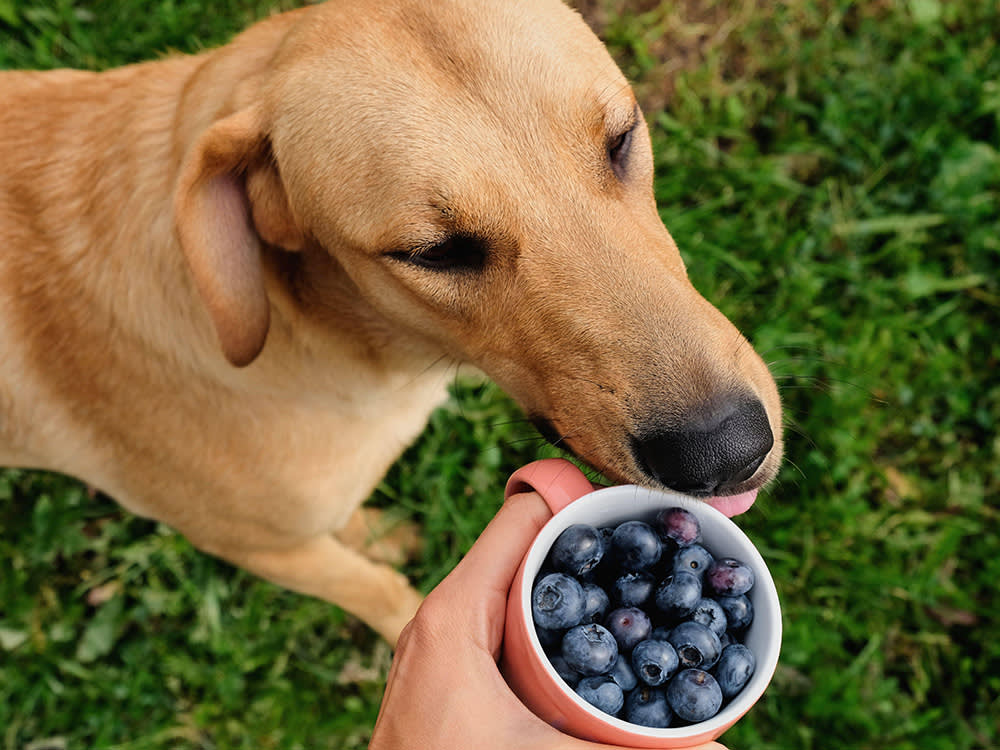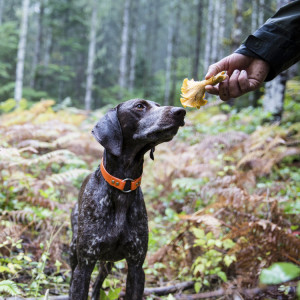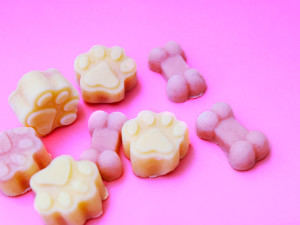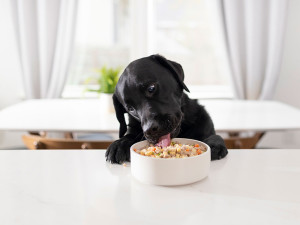10 Superfoods You Should Share With Your New Dog
From kale to quinoa, these nutrient-packed picks deserve a spot in your dog’s food bowl.
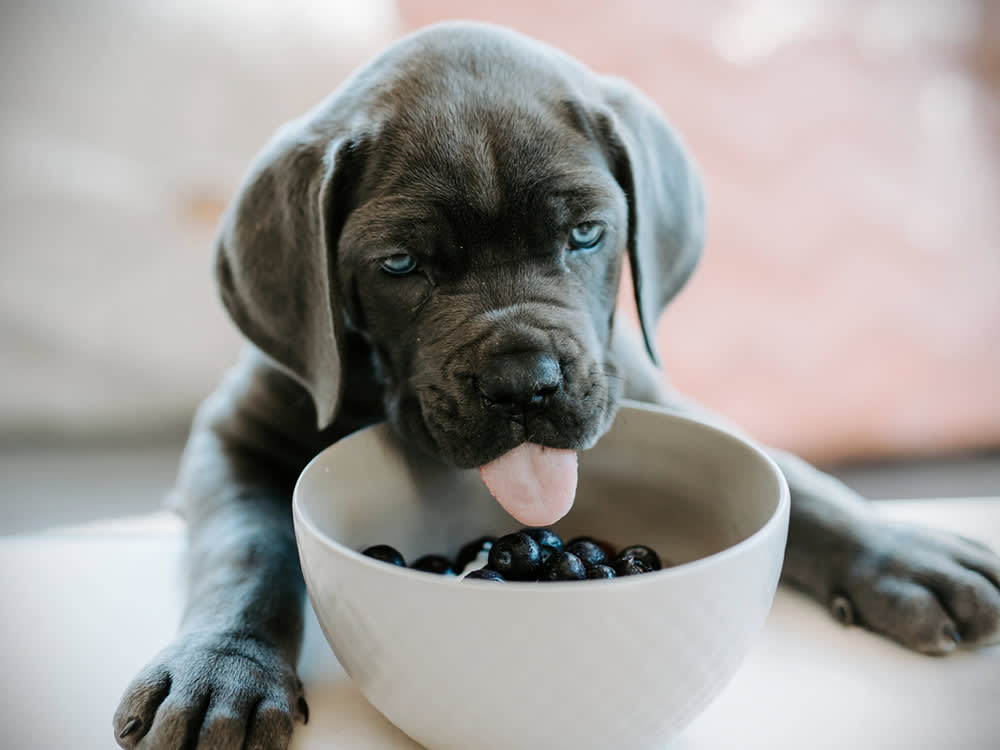
Share Article
You’ve heard about “superfoods” for humans (lookin’ at you, salmon and blueberries). But what makes a food “super” for dogs? Canine superfoods deliver the maximum amount of nutrients with minimum calories. And as it turns out, lots of superfoods for dogs are good for humans, too. As you bring home your new pup, it’s important to keep in mind that snack time can feature more than just the bag of treats you pick up at the pet store. Good news for them: You can also let them in on some of the produce you have in your fridge and pantry.
The nutrient-packed picks below will help your dog (and you) fight disease, boost energy, and maintain good health in general. They make great additions to your dog’s diet — whether you feed them packaged dog food or home-cooked meals. Just be sure to introduce these foods gradually and in proper portions — and run them by your vet first if your dog has any dietary or health issues.
10 superfoods for dogs
1. Kale
This supercharged leafy green contains loads of vitamins, including A, E, and C. Kale is a good source of antioxidants and helps the liver detoxify the body. It also has anti-inflammatory properties. If your dog has bladder stones or kidney disease, ask your vet before feeding your dog kale; it may need to be avoided.
2. Carrots
Crunchy and naturally sweet, carrots are loved by most dogs. They’re loaded with carotenoids, fiber, vitamins C and K (which aids in blood clotting to help wounds heal), as well as potassium. They also have magnesium, manganese, most of the B vitamins, and phosphorus, which is required for energy production, among other things.

3. Pumpkin
Low in calories and high in soluble fiber, pumpkin helps maintain a healthy digestive tract. It is low in sodium and exceptionally high in carotenoids, potassium, and vitamin C; it also has some calcium and B vitamins. Canned organic pureed pumpkin can be found at grocery stores but be sure that it is pure and not a pie filling — it should have no sugar or spices added.
4. Sweet potatoes
These tuberous root veggies are rich in beta-carotene and boast 150 percent more antioxidants than blueberries. Sweet potatoes are also super high in heart-healthy vitamin A and packed with vitamin C to keep your dog’s immune system strong.
5. Fish
Oily fishes like herring, salmon, sardines, mackerel, and anchovies are bursting with omega-3 fatty acids. Omega-3s can do wonders for your dog’s skin, coat and brain; it can also inhibit inflammatory processes that cause arthritic pain and other chronic canine conditions. (If your dog has any of these conditions, ask your vet if fish oil in capsule form might help too.) Fish are also an excellent protein source, with many essential vitamins and minerals.
6. Nori (dried seaweed)
Dried edible seaweed is a Japanese staple. Often associated with sushi, nori is available in some supermarkets, especially those that stock Asian food items. It has protein, galactans (a soluble fiber), vitamins C, E and all the Bs, and minerals such as zinc and copper. It also contains some lesser-known sterols and chlorophyll, which may help regulate metabolism. Nori may also aid in fat metabolismopens in new tab, immune function, and anti-tumor responses. Be sure to buy low-sodium nori to keep your dog’s salt intake in check.
7. Chia seeds
The seeds of this traditional grain have several of the same benefits as the more well-known “super seed” flax. But unlike flax seed, you don’t need to grind them to reap the health benefits. You can simply sprinkle seeds onto your dog’s meals. The nutritional benefits of chia include fiber, omega-3 fatty acids, calcium, antioxidants, and even protein. They are also highly absorbent, which means they can help hydrate the body.
8. Quinoa
Commonly considered a grain, quinoa is actually a seed related to spinach. It’s a complete protein, supplying all eight of the essential amino acids and is a good source of fiber, folate, magnesium, iron, phosphorous, and many phytochemicals. One of the few vegetable sources of complete proteins, quinoa is a potent antioxidant and helps reduce the risk of diabetes.
9. Yogurt
Yogurt contains active cultures known as probiotics (aka, healthy bacteria), which help keep bad bacteria away. It may improve gut function, contains a number of nutrients, including protein, calcium, phosphorus, vitamin B12, potassium, zinc, and iodine. It is also a fair source of other B vitamins, such as riboflavin and pantothenic acid (required for enzyme action and energy production, as well as other cellular functions).
10. Blueberries
Loaded with phytochemicals, blueberries are a great treat for your dog year-round (you can buy them fresh or frozen). The deep blue color comes from anthocyanidins, which are potent antioxidants; blueberries also supply vitamins C and E, manganese, and fiber. It’s best to give your dog small quantities since gorging on this tasty fruit can adversely affect canine (and human) bowel movements.
A few other healthy foods for dogs
In addition to these superfoods, there are many natural, fresh, wholesome foods that dogs and humans can thrive on, including apples, green beans, papaya, leafy greens, liver and hearts, eggs, oats, bananas, wheat grass, cranberries, nuts, pumpkin seeds, coconut oil, parsley, wheat germ, apple cider vinegar, and many more.
For dogs, animal protein such as chicken, turkey, duck, lamb, goat, rabbit, pork, beef, fish, and venison should also be an integral part of their meals.

Claudia Kawczynska
Claudia Kawczynska was co-founder and editor-in-chief of The Bark for 20 years. She also edited the best-selling anthology Dog Is My Co-Pilot.
Related articles
![pet parents making homemade dog food cheaper for black dog climbing on counter]()
Is Cooking Your Dog’s Food Worth it?
A nutritionist on dogs’ unique dietary needs, important ingredients, and other pro tips for home-cooked dog food.
![Teenagers Feeding a Dog Watermelon While Sitting In Car On a Sunny Day]()
9 Healthy Summer Snacks to Share With Your Dog
Your pup wants in on your crudité platter.
![Various Veggie Chips in a Ceramic Blue Bowl]()
Can Dogs Eat Sweet Potatoes?
Add it to the list of healthy human superfoods pups can eat, too.
![A dog sniffing a mushroom out of a hand.]()
6 Mushroom Superfoods that Won’t Turn Your Dog Into a Zombie
Nothing to fear here The Last of Us fans — ’shrooms are great immune-boosters.
![Frozen dog treats in the shape of bones and paws.]()
A Tasty Frozen Yogurt Treat to Keep Your Dog Cool
Made with yogurt, peanut butter, honey, and banana, they’re sure to make your dog drool.
![a black dog eats from a white bowl]()
8 Best Fresh Food Delivery Services For Dogs
Feeding your dog healthy whole foods is easier than ever.

